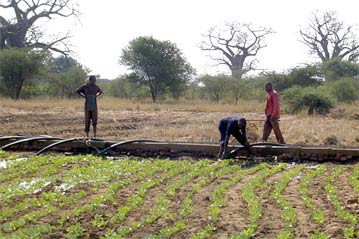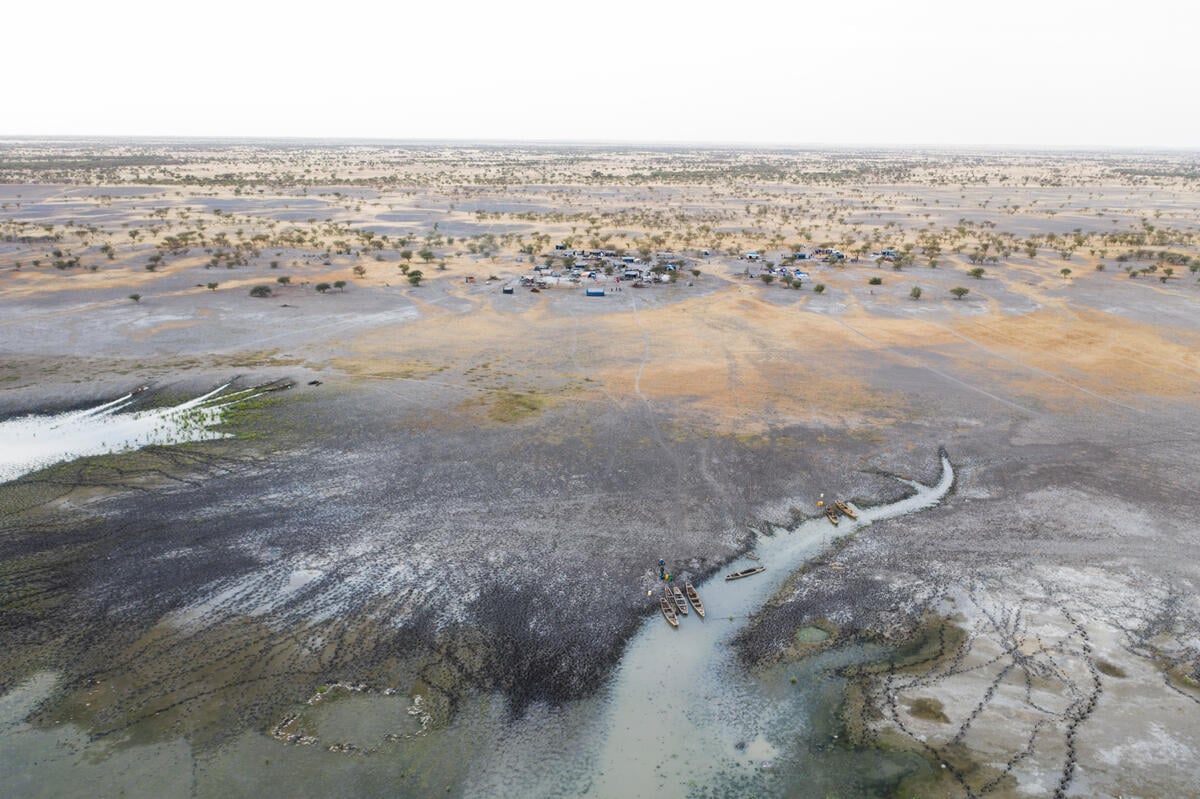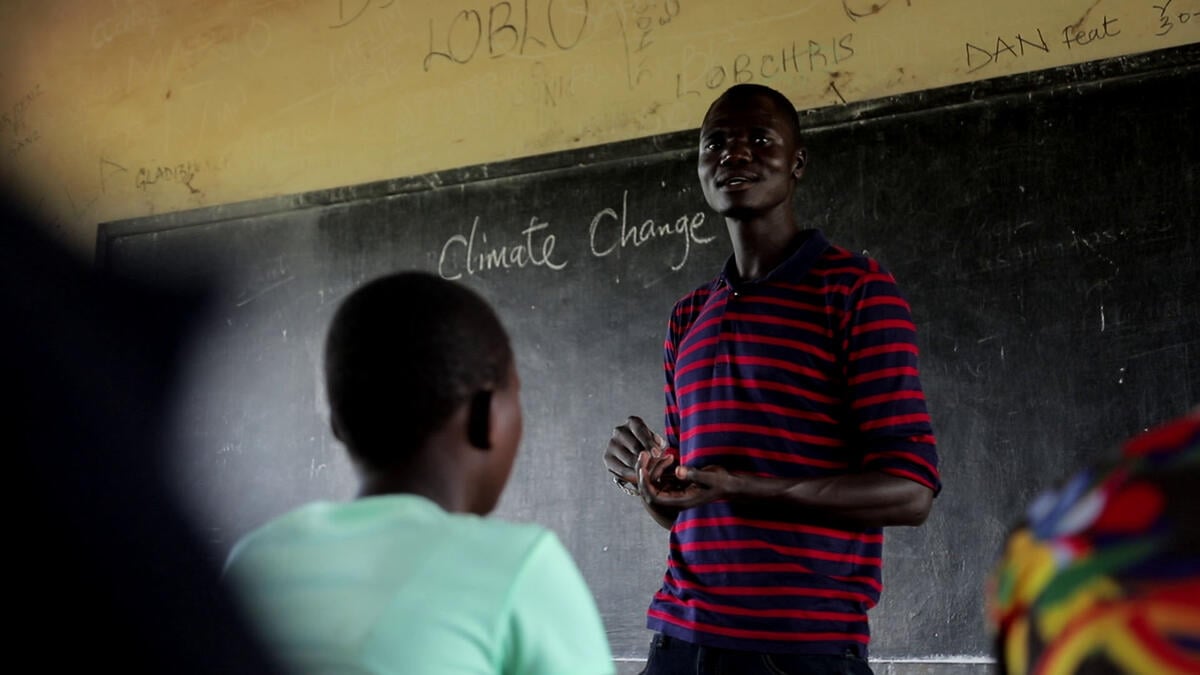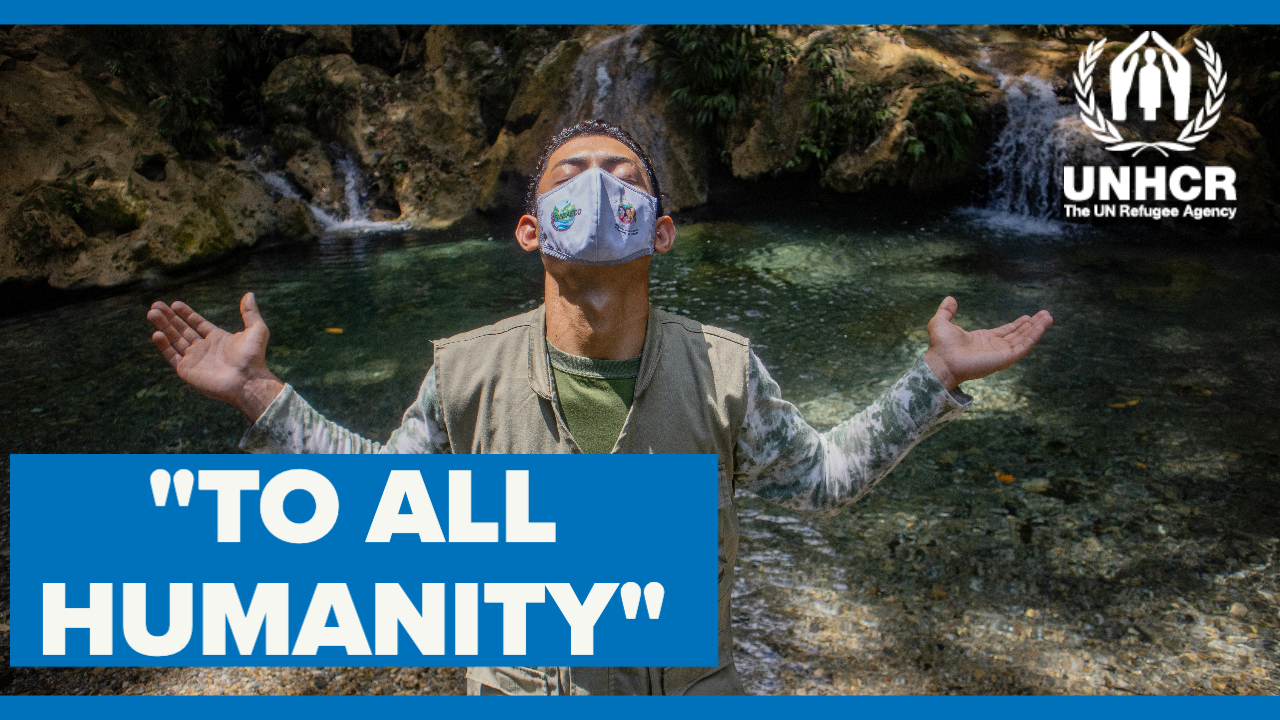Zimbabwe camp sows seeds for sustainable farming
Zimbabwe camp sows seeds for sustainable farming

TONGOGARA CAMP, Zimbabwe (UNHCR) - Permaculture is a difficult word, but to the children in Tongogara refugee camp, it spells: maize, beans, sweet potatoes, carrots, pumpkins, onions, pawpaws, oranges and bananas.
The kids love their permaculture project at school. It not only teaches them about plants and agriculture the fun way, but also makes them little experts in the eyes of their families.
Permaculture is short for "permanent agriculture", a method of environment-friendly, sustainable and intensive farming throughout the year. The concept originates from the world of ecology, but it is in the Zimbabwean refugee camp of Tongogara near Chipinge that this technique has been applied very successfully in a refugee context.
Water is a main element in permaculture, which uses a minimum of water in a semi-arid region where wasting water is frowned upon. Scarce rainwater is collected and even the so-called grey water, the spillage of water at the camp's water taps, is recycled.
Windfall, the proper combination of plants, natural fertilisers and the surrounding fauna also play an important role in permaculture.
The refugees in Tongogara cultivate vegetables and fruit with methods custom-made for the given soil and climate. As a result, they are not only able to complement their diet with fresh produce, but they also grow and sell maize and high-quality cotton as a valuable source of income.
This year, refugees farming cotton made up to 3 million Zimbabwean Dollars ($567) while sugar beans or maize can earn them between 200,000 and 450,000 ZWD.
Some 1,800 refugees from all over Africa live in Tongogara camp, and there is even one Yugoslav refugee. Many of the Congolese and West Africans are of urban background, so cultivating land was not too appealing to them when the project started in 1998. The Rwandans and Burundians, being experienced farmers, broke the ice. Nearly half of the refugee families are currently participating in the project.
The kitchen gardens are tiny pieces of land just behind the refugee huts. The vegetable plots, which require regular irrigation, are a few hundred metres away and measure up to 0.1 hectares. Some refugees also cultivate cotton and maize on fields of 1 to 3 hectares. These do not require that much attention and are situated further out.
The permaculture project is run by SAFIRE (Southern Alliance for Indigenous Resources). Refugees are instructed on what to plant and when, how to water the fields and how to weed them. Trainers show them the methods on special demonstration plots.
"Permaculture is labour intensive," says project manager Moffat Phiri. "Many refugees do not mind, because they have enough time and nothing else to do, but some want to take shortcuts and do not follow our advice."
He points out the plots that were not levelled in the right way to allow the water to get to every plant. These pieces of land are barren, dry and overgrown with weeds while neighbouring gardens are full of vegetables almost ready to harvest. But the project manager is not worried. Even if this year's harvest does not work out for some, they will learn from their mistakes and do better next year.
Phiri obviously enjoys his work and the immediate impact it has on the lives of refugees. But his favourite part of the job is working with the camp school. From pre-primary up to the final grades, the kids are cultivating their own tiny plots in the school garden.
It looks like the Garden of Eden. The children can shape them as they wish. There are hearts, letters, and even animal shapes. Everything is lush and green.
Phiri provides a large variety of seeds and seedlings when their planting time comes. The students choose whatever they like. Come harvesting time, they take home half of the yield. The rest is sold on the market to increase the school budget.
Last year they even had a poultry project. "The little boys and girls were so proud when they were able to bring home half a chicken each," says Ms. Mutema, the headmistress.
Not all parents were happy with the project when it started a few years ago. They felt that their children were made to work for food and thought this unacceptable. But the children's zeal convinced everybody.
"They cannot wait for the afternoon when they can go back to their little plots and work on them," says Ms. Mutema. The kids' enthusiasm proved contagious. In many instances it was the children who talked their parents into participating in the permaculture project.
As we walk along the field, two Rwandan women come up to us. They are upset with the locals from the nearby village whose cows roam freely and feast on the vegetables. "Oh, mes haricots verts!" laments one of them. Her green beans were just ready to be plucked. Phiri tries to calm the ladies down. Barbed wire has already been bought and the construction of a fence is about to start.

Incidents happen, but generally the mutual relationship between locals and the refugees over permaculture is not strained. They learn from each other. Refugees introduced new vegetables from their home countries, some of which are now also grown by the local population, such as the scrumptious yellow egg plant. In turn, the locals teach the refugees how to grow, cook and preserve the local types of fruit and vegetables. So a real culinary exchange is going on between the communities.
Like everywhere, things sometimes go wrong in the project. Recently, Phiri bought fruit tree seedlings and planted them between the plots. In three years, he anticipated, they would grow enough to provide fruit and some shade to rest under. The purchase stretched the budget of the SAFIRE project to the limits, but he thought it worthwhile. But within days, all the plants had disappeared. Some refugees had sold them on the local market.
Things like these make Phiri angry. But he knows what to do: "When I get really frustrated, I just go to the school garden in the afternoon to see the children. They are so excited and happy about their plants that I forget all my troubles and start afresh."








